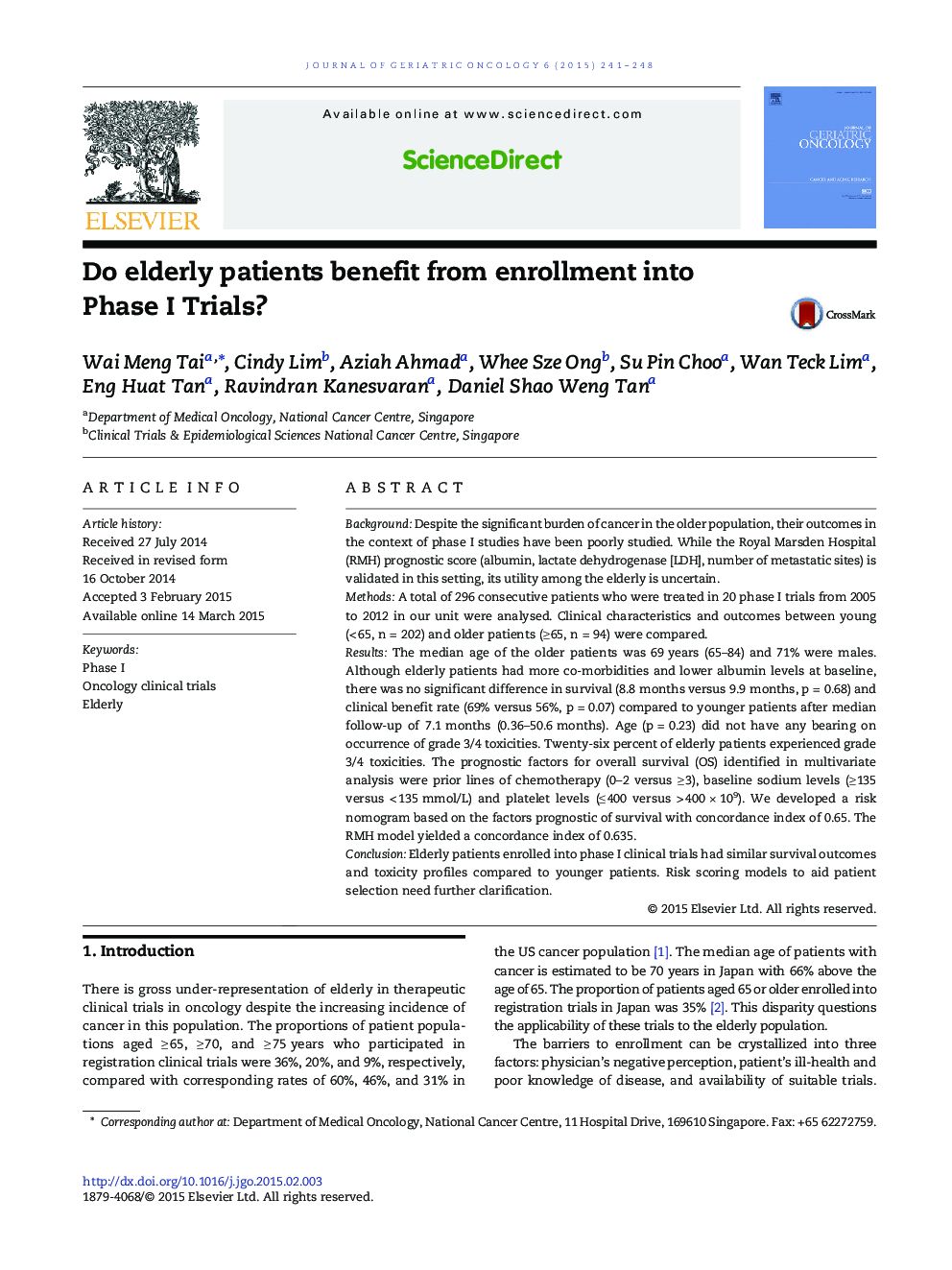| Article ID | Journal | Published Year | Pages | File Type |
|---|---|---|---|---|
| 1912273 | Journal of Geriatric Oncology | 2015 | 8 Pages |
BackgroundDespite the significant burden of cancer in the older population, their outcomes in the context of phase I studies have been poorly studied. While the Royal Marsden Hospital (RMH) prognostic score (albumin, lactate dehydrogenase [LDH], number of metastatic sites) is validated in this setting, its utility among the elderly is uncertain.MethodsA total of 296 consecutive patients who were treated in 20 phase I trials from 2005 to 2012 in our unit were analysed. Clinical characteristics and outcomes between young (< 65, n = 202) and older patients (≥ 65, n = 94) were compared.ResultsThe median age of the older patients was 69 years (65–84) and 71% were males. Although elderly patients had more co-morbidities and lower albumin levels at baseline, there was no significant difference in survival (8.8 months versus 9.9 months, p = 0.68) and clinical benefit rate (69% versus 56%, p = 0.07) compared to younger patients after median follow-up of 7.1 months (0.36–50.6 months). Age (p = 0.23) did not have any bearing on occurrence of grade 3/4 toxicities. Twenty-six percent of elderly patients experienced grade 3/4 toxicities. The prognostic factors for overall survival (OS) identified in multivariate analysis were prior lines of chemotherapy (0–2 versus ≥ 3), baseline sodium levels (≥ 135 versus < 135 mmol/L) and platelet levels (≤ 400 versus > 400 × 109). We developed a risk nomogram based on the factors prognostic of survival with concordance index of 0.65. The RMH model yielded a concordance index of 0.635.ConclusionElderly patients enrolled into phase I clinical trials had similar survival outcomes and toxicity profiles compared to younger patients. Risk scoring models to aid patient selection need further clarification.
